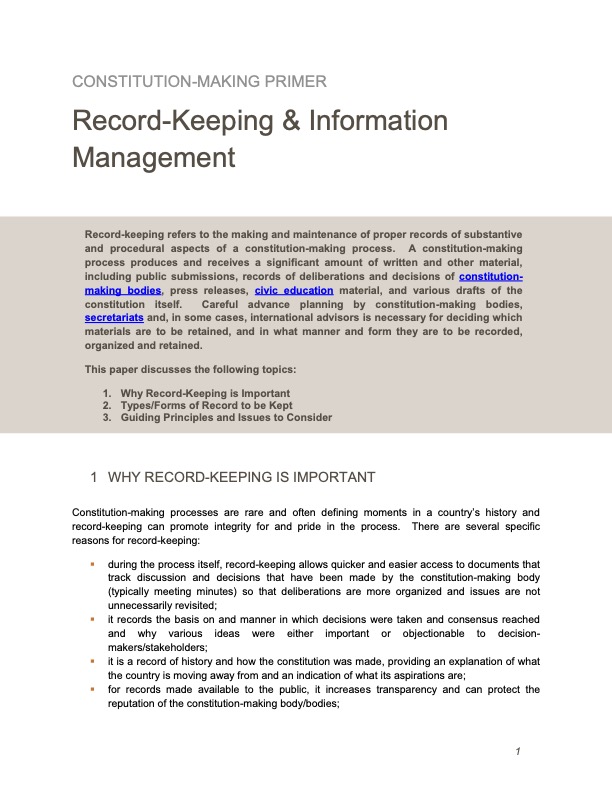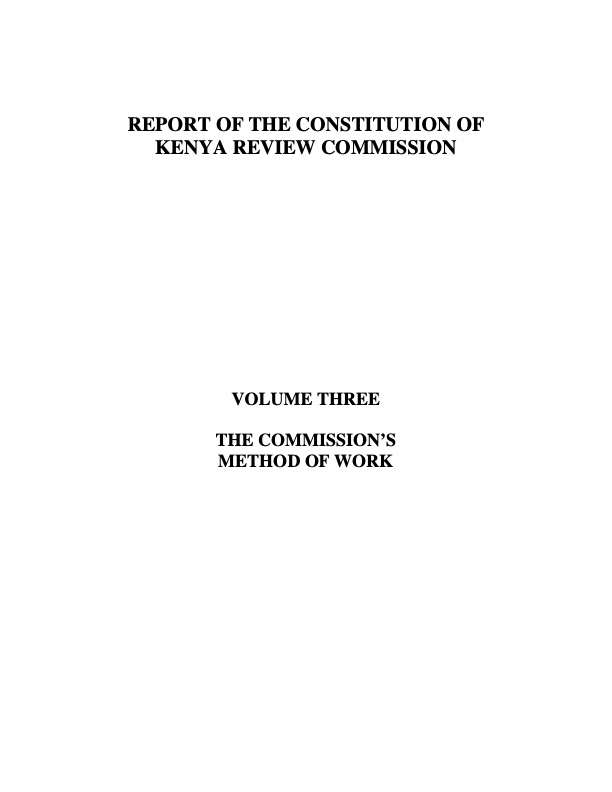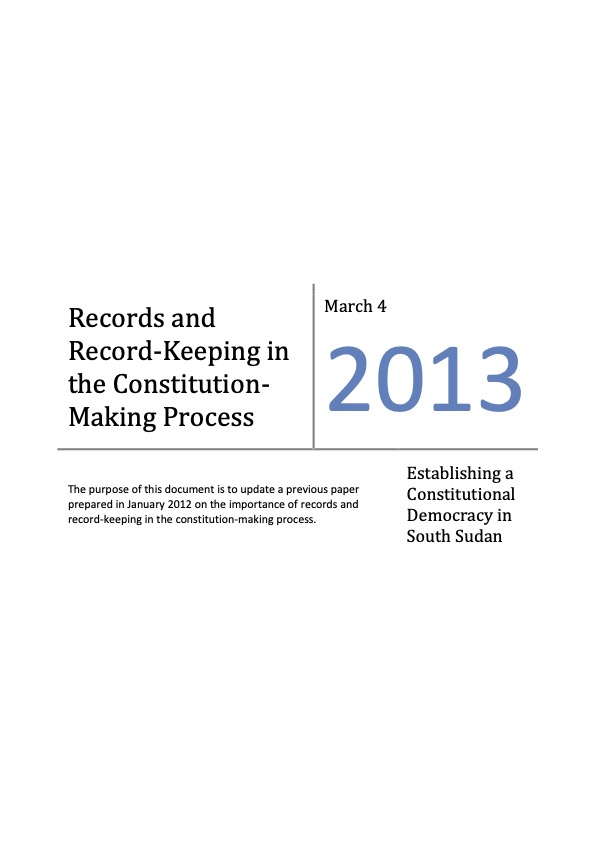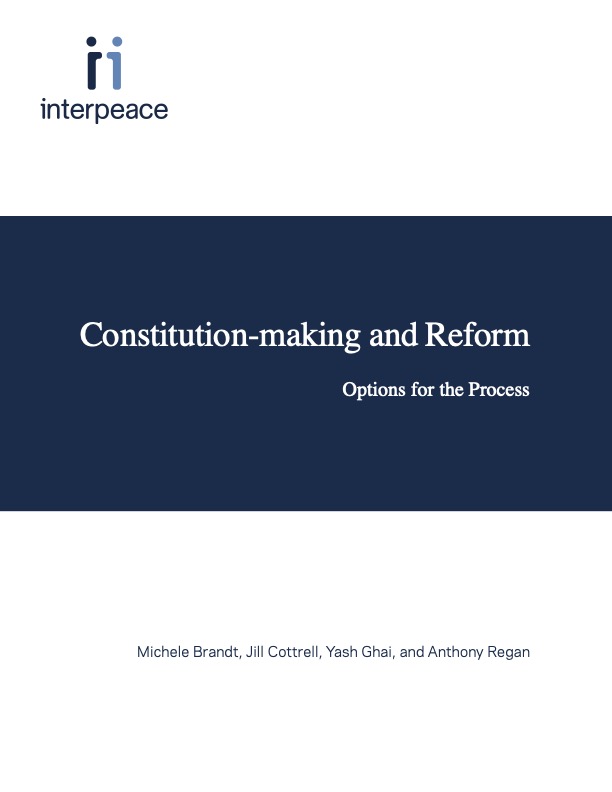Record-keeping refers to the making and maintenance of proper records of substantive and procedural aspects of a constitution-making process. A constitution-making process produces and receives a significant amount of written and other material, including public submissions, records of deliberations and decisions of constitution-making bodies, press releases, civic education material, and various drafts of the constitution itself. Careful advance planning by constitution-making bodies, secretariats and, in some cases, international advisors is necessary for deciding which materials are to be retained, and in what manner and form they are to be recorded, organized and retained.
Primer

Sample Materials

This report of the CKRC comprehensively discusses the Commission's mandate, structure and activities as part of the post-2000 constitution-making process. The report is structured around the CKRC's activities before, during and after the 2003-2004 National Constitution Conference (NCC).
Further Reading

This paper discusses the importance of records and record-keeping in the constitution-making process, including: guiding principles, types and forms of records, methods of record-keeping and specimen agendas, minutes and resolutions.

This is a comprehensive guide to constitution-making and reform. The book identifies the tasks that need to be carried out, the procedures that can be used, and who can do them. It is intended for a wide audience and to be a guide for anyone who is engaged in a constitution-making process, or who is interested in improving constitution-making practice. It includes a discussion on the following topics: Emerging guiding principles, Impacts of Adherence to Guiding Principles, The Role of a Constitution Issues of Process Key Components and Issues of the Constitution-Making Process Tasks and Responsibilities in Constitution-Making Assessing the Impact of Constitution-Making Who Does What in the Process Starting the Process Public Participation Administering and Managing the Process and its Resources The Agenda of Constitutional Issues and Generating Ideas on the Issues Debating and Deciding the Issues The Constitutional Text: Coherence and Drafting Adopting and Implementing the Constitution Institutions with Multiple Roles Institutions that Develop Proposals about which Final Decisions are Made Elsewhere Administrative Management Bodies Specialist or Technical Input Institutions Referendums and Plebiscites Civil society and the media and Guidance for the International Community.
